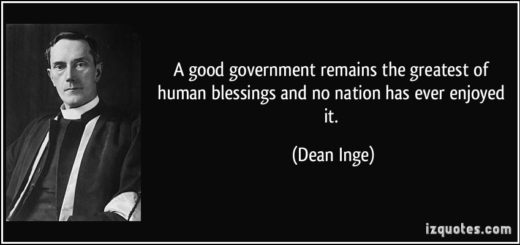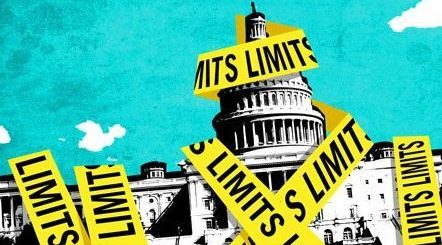Modern Monetary (Marxist) Theory

MMT for some strange reason has emerged recently in the media as a supposedly feasible alternative to modern economic conventions. Why is a mystery to me. The prime mover of this folly seems to be Mr. Warren Mosler, who runs a hedge fund out of a Caribbean island and with whom I had several discussions years ago. Conceded or not, what Mr. Mosler and his crew advocate is what every Marxist, socialist, or big government adherent relishes – a further loosening of the unwieldy, insatiable government beast from its financial moorings
Mr. Mosler may have a modest understanding of central bank operations, but he little understands how economic levers exercised by dull oracles at the inscrutable US central bank, the Federal Reserve, affect the economy as a whole.
Civilization is laden with the perils of big, over-arching, tyrannical government. How does one tame and restrict this powerful, ubiquitous, voracious agglomeration of departments to its proper domain?
As history demonstrates, success in combatting tyranny and its impulses is rare and limited. Even the United States, so thoughtfully constituted and arrayed by the singularly valiant and intelligent efforts of its Founding Fathers and Framers, has fallen to the relentless, beguiling overtures of the seductive monster. The last 90 years, growth in all levels of government has been unstoppable, rising from an enviable 10% of National Income in 1930 to above 40% today. Its various arms, largely unaccountable to the people it supposedly serves, require accelerating stocks of money and resources to meet its expanding obligations and operations.
Endowed with a sovereign currency government is the only entity that may squander funds, taxed, borrowed, or printed, with impunity. If one were to borrow at 10% and invest at 5%, one’s financial resources would exhaust quickly. But government endures perpetually, investing badly and creating waves of inflation until eventually financial collapse or revolution arrive.
The one profound check on government has been Taxation. Government, as large as its appetite for greater expenditure is, laboured for centuries to remain within its sharp confines save in national emergency. The public commended the superintendents of public institutions if the year ended in surplus, and assailed financial imprudence and recklessness if the account brought a deficit. Debt was an evil and surplus a virtue.
Taxation, however, is laden with profound problems. Revenues abound during economic expansions and recede with recessions. Thus, public expenditure, its claims on finite resources of men, material and equipment, soars with prosperity and retreats with hardship.
A smart fellow by the name of Keynes suggested spending in hardship and curtailment in abundance. Great idea. Unfortunately, the great Keynesian ship of fools failed to heed the latter part of his wise advice. The Keynesian principle, in practice working in only one direction, rent forever the taboo of borrowing. Government today, many operating at 40 to 50% of GDP, are spending well in excess of tax revenues the world over. Deficits, liberated from former strictures, bear no pain or reproach for the masters of profligacy. With a facility unknown Government spends to excess in good times and in bad courtesy of swelling deficits and public debt.
It’s not hopeless if the government at least spends well. But without any cost and benefit analysis or measure of worth of public expenditures, it is doubtful government ever does. Do we receive value for money? The answer invariably must be a boisterous and ceaseless NO!
Along comes Mosler and his devotees to assure us that government, long bereft of cautious, intelligent, thoughtful public expenditures, may redouble its sordid labours as permitted by the novel, oracular, and gloried pronouncements of MMT. Yes, another bottle of whiskey for the incoherent, stumbling drunk.
MMT is neither novel nor feasible. The tenets of this mystical theory are partially acceptable and partially absurd. In my discussions with Mr. Mosler worthy questions were met with dogmatic, repetitive responses. I wondered if Mosler and Company agents of Putin’s Russia, out to raze the US financial system, or just maniacal, mischievous tots awaiting recess?
Numbers have meaning. They are crucial to the financial system, any financial system. And those numbers assigned to bank accounts and altered through innumerable records of credits and debits must balance. The entire system of banking rests on a reconciliation of a multitude of accounts at a multitude of branches at a multitude of banks all allied by a central banking authority. If one entry arrives early or late, the sequence is marred.
MMTers assert that government may first spend and then after an interval collect funds for payment, but only that fraction required to quell inflationary impulses. The Treasury account is apparently immune to the string of NSFs that would ensue. It is said that as the central bank creates and issues currency notes, the physical representation of the jurisdiction’s monetary unit, the creator may do as it please.
But currency is issued in response to market demands by the various member banks of the Federal Reserve system, and it comprises a very small fraction of US dollars in existence, about 5%. If government were to expand expenditures by a sum equal to all US currency in existence, roughly $1 trillion, the effect would be an inflationary doubling of the entire US money supply as the currency/money equilibrium recovered over a span of time. If $1 trillion were borrowed, the money supply would expand by a modest 5%. The small payoff in enlarging public expenditure by the actual printing of currency is dwarfed by the payoff in borrowing.
Most money is intangible, situated in electronic records. It is created by private banks through the loans process. To argue that the government because it creates currency via the central bank is, thus, the owner of all money or its equivalent in resources is an absurd leap. The money or resources it commands belong to the people who earned it.
The US dollar is preferred for use in economic exchanges because the US Government and Federal Reserve labour at maintaining its integrity. If they were to imitate the example of brutal, corrupt dictatorships in debauching the monetary unit, none would have much use for it. I saw a picture of a multitude of ornate, government issued Bolivar notes scattered over a street and sparking no interest from passersby.
In banking and the settlement of accounts, no issue arises in the interminable sequence of debits and credits if funds are present to fulfill transfers. If the funds aren’t, then loans are necessary both in regular or MMT banking. An account cannot rest in the negative. Either MMT gets a loan or its account is closed hastily.
Central Banks are banks with certain differences. It is well-known that government may sell bonds to the Central Bank, have its account credited on the Liability side of the CB’s balance sheet and its IOUs registered as loans on the Asset side. If government borrows by drawing funds from member bank accounts on the CB’s Liability side, it’s denoted fiscal policy. If on the Asset side, monetary policy. Ms. Kelton, one of MMT’s devotees seems confused about the difference. The Central Bank may purchase government bonds perpetually. But there is a big problem, one that has appeared in striking fashion over the last 10 years in the United States and in Japan the last 30 years. The unprecedented elevation in the Fed’s balance sheet engenders copious reserves, which undermine calculations of financial risk and reward.
Let us say that banks maintain a reserve ratio of 10%. The US Government drops off Treasuries in the amount of $1 trillion at the US central bank known as the Fed. The Fed records the bonds as an asset and credits the Treasury account on its Liability side. This lone transaction generates reserves to satisfy the creation of $10 trillion in loans. Such a vast increase in reserves artificially and profoundly depresses interest rates, depriving savers of just returns and harming the premium offered to save for tomorrow.
Mr. Mosler suggests the US Federal Goverment should fund all of its expenditures, roughly $4 trillion, through Federal Reserve loans. If so, $4 trillion dropped off at the Fed would generate reserves at a 10% reserve requirement in one year to support the creation of an incredible $40 trillion in loans. The market premium offered to savers to defer use of funds should decline to near zero or may turn negative. Currently, total bank loan book value in the US is roughly $17 trillion. It took 200+ years to get there. Now the MMT geniuses wish to offer reserves to accommodate 2 ½ times that figure in one year. Year 2 would bring another $4 trillion in reserves. With reserves exponentially elevated banks would never need to bid for the carefully conserved funds of judicious savers.
Japan has been following this corrosive advice for 30 years, which has left that island a financial basket case. After impressive growth post WW2 through to the 80’s, Japan experienced a severe recession from which it never recovered. Then the Bank of Japan and its partners purchased large amounts of government bonds, flooding the markets with reserves, and greatly depressing interest rates. Amid negative interest rates, Japan has suffered 30 years of malinvestment. Financial issues stemming from the late 80’s were never resolved. Borrowed funds were expended on projects of dubious value resulting in diminished returns, a shrinking economy, aging population, and low birth rate. Whatever happened to the economic miracle?
For 11 years the Federal Reserve has conducted a similar experiment with similar results. Public debt, household debt, asset prices, inflation have soared with the artificially depressed interest rates and poor returns for savers, insurance companies and pension funds.
The ruinous consequences of this grotesque prescription does not deter MMTers. In their policies, profligate government expenditure will no longer face impediment. Public debt has swelled with the badly implemented Keynesian prescription. By having the Central Bank engage in wholesale purchases of public debt as MMTers urge, what is to prevent government from commandeering the entire economy as the brutally, incapable Soviet bureaucracy once did?
But, MMTers argue, government will be controlled by putting on the economic brakes when inflation arises. The politically manipulated measure of inflation has long perverted and muted the true rate. The government doesn’t wish anyone to know that its bonds yield less than inflation, that its deliberately flawed measure has inflated away the public debt, pushed taxpayers into more onerous tax brackets and clandestinely imposed tax increases. Why would government leaders discard such a profitable and designedly devious measure when it successfully aids them in enlarging the boundaries of their proliferating operations?
With the constraint of debt accumulation weakened for 90 years by Keynesian policies, public borrowing has expanded to unprecedented levels, especially these last 40. Cheap money has allowed government to avoid raising taxes and instead borrow to underwrite the most atrocious waste of funds on earth. MMT now wishes wholly to discard debt constraint.
MMT is not a complete loss. Its proponents do make an interesting observation on deficits, which I agree with, but only because I define deficits differently.
The current definition of the deficit is public expenditures in excess of tax revenues. This is the great errant premise in Public Finance theory. The deficit is every dime government spends because government has no money. Whether taxed or borrowed money always comes from without government. Taxpayers and lenders fund government, all of it.
Thus, we are entertained by these ridiculous and erroneous arguments on the size of the deficit. In the US, federally it’s $4 trillion or the whole of federal public expenditures. It doesn’t matter if $1 trillion were borrowed and $3 trillion taxed, or $3 trillion were borrowed and $1 trillion taxed, the money is coming from outside government. Once the economics profession accepts this, a revolution comes to Public Finance theory and practice.
The primary problem is not a comparatively small amount of money spent in excess of tax revenues. Problems fester and erupt within public expenditures regardless of the source of funding. What do we receive for the money or rather immense resources commandeered by government? As squander, corruption, over-regulation are so prevalent in public expenditures we aren’t getting much.
Let us imagine government borrows funds for an unworthy public venture, not a difficult endeavour. Resident lenders cede savings in return for a near-money, redeemable government bond paying some order of interest. Savings have been converted into consumption, spurring the economy. The funds or rather resources, i.e. men, material and equipment, are diverted to unproductive purpose, say in digging holes in the morning and filling them in the afternoon. All, even the unproductive hole-digger having added nothing to aggregate supply, now have the funds to compete for goods, especially necessities, in the market place.
The near-money, redeemable, government bond must be settled in the future with the proceeds of a public investment yielding no return and a complete loss of principal. The stock of money with the addition of a government IOU – an ornate scrap of interest bearing paper – has expanded. Enlarging the supply of money without correspondent increase in the supply of goods is inflationary.
If funds are taxed and subsequently spent in wasteful extravagance, no bonds are issued, and all on average are poorer. Those who contribute nothing feast on funds or wealth so capably earned and conserved by the productive.
As MMTers admit, government would just drop off its IOUs or bonds at the local Fed bank and have its Treasury account credited. It is equivalent to a government creating as much money as it please, as they did in the old Soviet corpse or in Zimbabwe. There will be no check upon public expenditures. The Soviet Union had a lot of money floating about, but few people, perhaps 20% of the populace, produced the goods demanded by the holders of that money. Full employment, but only a few employed in productive purpose. This recipe of dearth, a paucity of supply amid immense demand, is what MMT offers to the US.
With rising public expenditures and a great deterioration in the value of the nation’s currency, people should quickly find other forms of money or other currencies to use. It’s a good argument for prohibiting Central banks from purchasing any government bonds. They can make loans to troubled member banks and settle their accounts, but government bonds should be forbidden to them!
One should think the Euro, the common currency of 19 nations comprising 350 million people of the European Union, would furnish a solid defense against the perils of MMT. The Euro, having usurped national currencies in 2002, works in much the way the US dollar does among individual states. €1 Euro is the same in France as it is in Italy, just as $1 in Florida is the same as $1 in New York, though it may not buy the same quantity of goods. Euros are free to move from the bank accounts or pockets of a person in one nation to those in another without worry of exchange conversions or losses.
The European Central Bank, ECB, oversees the operation of this fascinating instrument with the member nations’ central banks acting in the same way as member banks at the Fed. A cheque drawn on a Greek bank and cashed in Germany will end up at the ECB for payment. The Greek Central bank will honor the request by moving funds from the cheque writer’s bank account at its Greek member bank to the ECB, thence to the German Central Bank, where it is deposited into the bank account of the cheque’s recipient at the German member bank.
Any intervention in financial markets by the ECB must be approved by its Board of Directors, representatives selected by the European Council. If there should be a deficiency of Euros requested for transfer from a member nation’s central bank, the ECB could with Board approval issue a temporary loan to cover the shortfall. Collateral of equal value, a government bond, would be accepted and held until the shortfall cleared.
In 2008, with the massive failures and discrepancies in settlements among member nations, the Board of the ECB acted in similar fashion to the Fed, flooding the financial markets with reserves as it purchased vast sums of bonds issued by member nations in order to clear shortfalls. The central bank mentality of the Bank of Japan infected both the Fed and the ECB. Today, above 20% of bonds issued by Euro governments are held by the ECB, which created and augmented the same problems afflicting US and Japanese financial markets, 0 or negative market interest rates. A common currency has no hold on the maniacal impulses of central bank officials.
MMTers ignore the obvious, that an economy is not about money. It’s about allotting finite resources to the best, most profitable purposes. A nation survives and thrives because the economic system employed provides for its people. MMT does not solve the problem of government squander and its resulting inflation, but enhances it acutely.
Undoubtedly, the optimum state of allocating resources to best use will not arise in a marxist, communist, socialist, or fascist state wherein the tentacles of government are long and ubiquitous. Government is an entity that grows without restraint. The Soviet Union, where bureaucrats imposed unworkable measures on the economy, property, people and society, is exemplary of the ugliness, and ruthlessness of despotic minds divorced from reality. Government is the great menace to civilization. The signals for proper and worthy allocation of resources permitting unexcelled profits issue from free and unrestricted markets, not blind, awkward, arrogant and diseased bureaucracies.
Western nations have set themselves on the Soviet path to ruin. MMT will serve to accelerate their demise. There is no cost and benefit analysis in any state effort, no justification for diverting immense resources to dubious undertakings. Politicians and bureaucrats have long ceased working in the general interests of the nation’s people as greedy, powerful, influential special interests dominate.
MMT could never thwart or limit the growth of government? With only a vague measure of inflation, easily manipulated and distorted, government shall run amok.
Is there an answer to reversing our path to hell, to attaining the elusive path to optimum allocation of resources unleashing wealth?
There is, and it lies in the operations on the Liability side of the Fed’s balance sheet. By slightly altering the method by which the government’s bank account at the central bank is replenished, one may easily liberate the free market system and restrict government to a fitting size.



